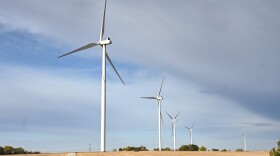Midwest grain will reach foreign markets faster thanks to a channel-deepening project in the Lower Mississippi River that the U.S. Army Corps of Engineers has announced will begin this year.
While that’s one bit of good news for infrastructure, it doesn’t make it any more likely other projects will follow.
A Senate committee passed an infrastructure bill last July with bipartisan support, but Sen. Chuck Grassley, R-Iowa, the chairman of the finance committee, says funding it will be a heavy lift.
“And both from Republican and Democrat leaders there doesn’t seem to be any support for raising the gas tax. So if you don’t raise the gas tax, then where do you go?”
Grassley says there’s a “grab bag” of ideas to raise some money, but not enough to pay for the $93-$110 billion package.
Still, Grassley says that won’t have any impact on the effort to dig the channel downstream from Baton Rouge to a consistent depth of 50 feet. That money’s already been put aside.
Mike Steenhoek of the Soy Transportation Coalition says the project will allow ocean-going ships to take on more Midwest grain in each load they pick up.
“You can not only load current vessels heavier with more freight, but you can attract some of these larger vessels that are becoming more typical in the international ocean trade.”
Steenhoek says when the project is completed in five to six years it will help modernize the shipping system. But he adds that locks and dams upstream need attention, too.
“It’s always important when you think about supply chains, including the agricultural supply chain, as a chain and you’re only as strong as your weakest link.”
Follow Amy on Twitter:@AgAmyinAmes
Copyright 2020 Harvest Public Media








